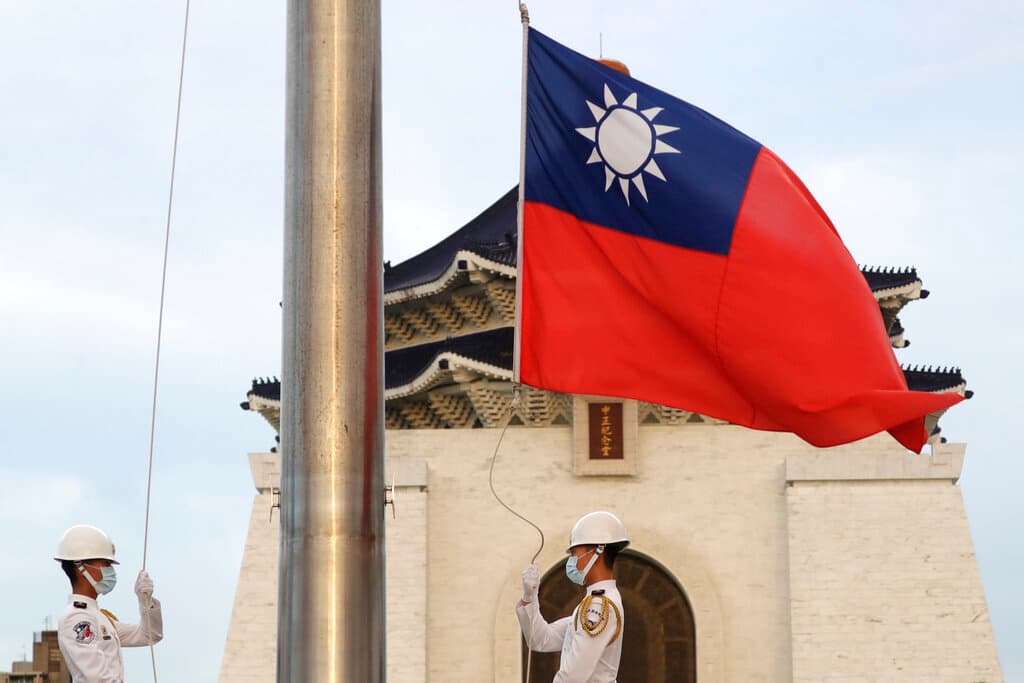McCarthy Courts Trouble in Retreat From Taiwan
A troubling signal about American resolve at a moment of heightened tension with Communist China.

Speaker McCarthy’s retreat from his avowed plan to travel to Free China to meet there with the president of Taiwan, Tsai Ing-wen, sends a troubling message about American resolve at a moment of heightened tension with the Communist Chinese regime at Beijing. Mr. McCarthy’s volte-face, first reported by the Financial Times, is being framed as a request from Taiwan “to avoid an aggressive response from Beijing.”
President Tsai will instead meet with Mr. McCarthy at Ronald Reagan’s Presidential Library. That setting certainly contrasts the assured posture Reagan maintained toward Soviet Russia and Mr. McCarthy’s skittishness toward Red China. “We shared some intelligence about what the Chinese Communist party is recently up to,” a “senior Taiwanese official” told the FT, “and the kinds of threats they pose,” to discourage Mr. McCarthy from coming.
In Taipei’s view, adds the FT, China is “not in a good situation right now” and Taiwan is anticipating that “more and more decisions would be made” by President Xi “and his inner circle.” The idea, it seems, is to head off “a demonstration of force by the People’s Liberation Army” like the one that followed Speaker Pelosi’s visit to Free China in August. That was but the second visit of its kind, following a 1997 trip by Speaker Gingrich.
Reuters reports “both sides” — America and Taiwan — feared that a visit by the Speaker “would severely increase tensions” with Beijing as Taiwan “is preparing for its own presidential election early next year.” This suggests that Taiwan’s own internal political divisions are a factor. Ms. Tsai’s party fared poorly in local elections in November amid accusations by the opposition Nationalists that she was “overly confrontational with China.”
That Mr. McCarthy’s visit showed signs of proving a political football for Taiwan is newsworthy. The head of the Nationalists’ international affairs department, Alexander Huang, in February touted the visit as “definitely” happening. Mr. Huang said the visit was welcome, yet sniped that Ms. Tsai’s government “had not prepared well” for the visit by Mrs. Pelosi. It appears Ms. Tsai’s party has little appetite for fallout from a visit by another speaker.
The FT calls Ms. Tsai’s “reluctance” a signal of “the impact of China’s military posturing,” designed “to constrain Taiwan and undermine its de facto independence.” Mr. McCarthy, by reversing his plans, has handed a victory on this head to Beijing, which in January all but ordered the new speaker to steer clear of Taiwan. “We urge certain individuals in the U.S. to earnestly abide by the one-China principle,” the Foreign Ministry said.
Beijing added that it is “opposed to any official interactions with Taiwan.” While Taiwan may have its reasons to avoid provoking Beijing, Mr. McCarthy’s about face is harder to understand. When Ms. Tsai speaks at the Reagan library, it will be an apt moment to recall the danger of which the Gipper spoke when he warned against appeasing our Communist adversaries and ignoring “the facts of history and the aggressive impulses of an evil empire.”

